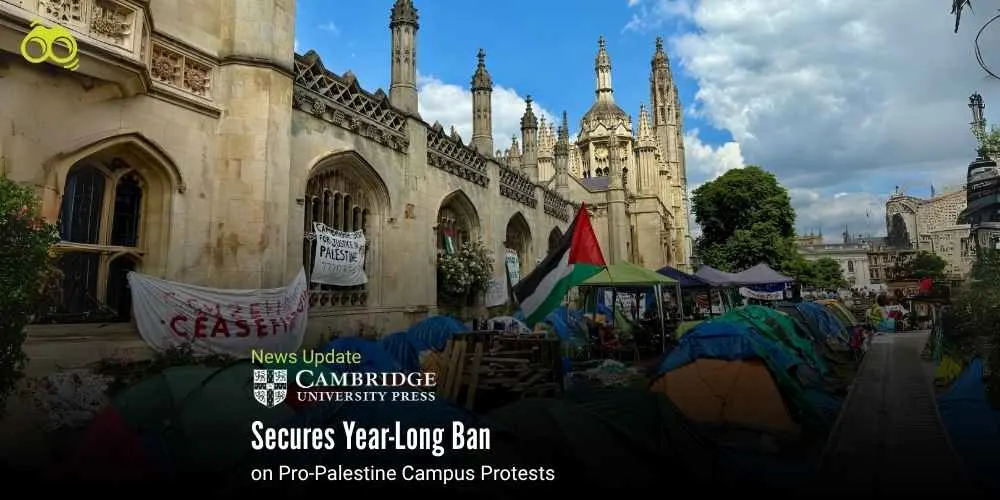Judicial Intervention Highlights Tensions Between Activism and Governance in Higher Education
High Court Approves Year-Long Ban on Pro-Palestine Demonstrations at Cambridge
The intersection of academic freedom, institutional order, and political expression remains a contested domain within UK higher education. Recent legal proceedings involving the University of Cambridge exemplify this tension, as the institution has secured a year-long injunction from the High Court to restrict pro-Palestine protests in specified areas of its campus. This development follows the university’s request to extend a previous injunction, originally issued to prevent disruptions during graduation ceremonies and set to expire on 26 July. University lawyers argued that members of the activist group Cambridge for Palestine continued to pose a risk of disruption. Kester Lees KC stated that the group had not withdrawn plans for future action, and that their social media activity suggested protests would persist until their demands were met.
The initial injunction, granted in March, prohibited entry, occupation, obstruction, and the erection of structures at Senate House, Senate House Yard, the Old Schools, and Greenwich House. The updated order now extends to include Chestnut Tree Lawn. Mr Lees further noted that since March, several direct action incidents had occurred near Senate House, including a May event in which a graduate accused the university of complicity in Gaza and refused to vacate the premises.
The injunction faced opposition from the European Legal Support Centre (ELSC) and Liberty. Grant Kynaston, representing the ELSC, contended that the order was overly broad and vague, and unjustly imposed ahead of October’s graduation ceremonies. He criticised the university’s increasingly stringent approach to student protests, warning that it raised significant human rights concerns. Moreover, Kynaston argued that although the injunction appeared neutral, it was effectively targeted at suppressing pro-Palestine activism, particularly at a time when such protests were deemed especially urgent.
In addition, sabbatical officers from the Cambridge Students’ Union condemned the injunction as an attempt to silence student voices. They asserted that students retained the right to protest and urged the university to uphold the principles of critical inquiry and accountability that it publicly endorses. The ruling prompts wider reflection on how academic institutions navigate the delicate balance between safeguarding freedom of expression and maintaining campus order in politically sensitive contexts.
Editor’s Note:
The High Court’s decision to grant the University of Cambridge a year-long injunction to limit pro-Palestine protests shows a growing tension between how universities manage their campuses and how students express their views. While the university says the move is to prevent disruption and ensure safety, critics worry it could harm the right to free speech and open discussion. The legal concerns about the timing and wide scope of the order bring up an important issue: how should universities deal with political protests on campus? As global conflicts continue to affect local communities, universities must find a fair balance between keeping order and allowing students to speak up.
Skoobuzz asserts that this is a clear reminder that universities have a duty not only to manage their spaces but also to support free expression and thoughtful debate.














0 Comments (Please Login To Continue)